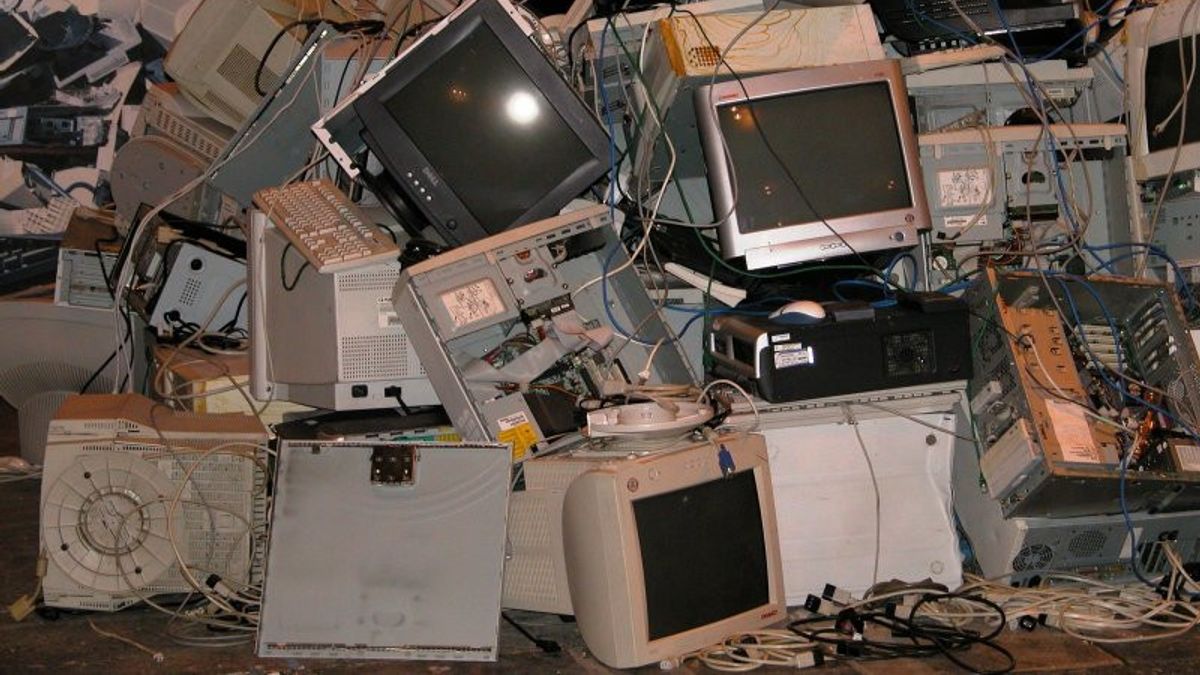
JAKARTA – A study shows that Bitcoin mining activities produce electronic waste (e-waste) every year compared to the waste of IT equipment in a small country like the Netherlands. The research was published in the journal entitled Resources, Conservation & Recycling.
Cryptocurrency miners annually generate 30.700 tonnes of e-waste, according to estimates by Alex de Vries and Christian Stoll. That's an average of 272g (9.5oz) per transaction, they said. In comparison, the iPhone 13 weighs 173g (6.1oz).
Miners earn money by creating new Bitcoins, but the computing used consumes a lot of energy. They audit Bitcoin transactions in exchange for the opportunity to acquire digital currency.
Attention has been focused on the electricity the country consumes, currently, more than the Philippines consumes, and the resulting greenhouse gas pollution.
However, as the computers used for mining become obsolete, it also generates a lot of e-waste.
Researchers estimate Bitcoin mining devices to have an average lifespan of just 1.29 years.
As a result, the amount of e-waste generated is comparable to the waste of “small IT and telecommunications equipment” from a country like the Netherlands. The IT waste category includes mobile phones, personal computers, printers, and telephones.
Electricity is a major cost for Bitcoin miners, so they are constantly looking for more efficient processors. That has seen usage move to highly specialized chips called Application-Specific Integrated Circuits (ASICs).
But ASICs are so specialized that when they become obsolete, they cannot be "reused for other tasks or even other types of cryptocurrency mining algorithms", the researchers wrote.
While chips are not reusable, most Bitcoin mining equipment is made up of components such as "metal casings and aluminum heat-sinks" that can be recycled.
SEE ALSO:
Globally, more than 17% of all e-waste can be recycled. However, the number may be less in some countries where most of the miners are located. While in many cases the regulations regarding e-waste are also bad.
Today many industries are struggling with a global shortage of chips. In addition to generating large amounts of e-waste, the researchers argue that "rapidly spinning through millions of mining devices could disrupt the global supply chain of various other electronic devices". The chip is one of the most disturbed.
They suggest that one solution to the e-waste problem is for Bitcoin to change the way transactions are verified, to another system that is less computationally intensive. But until now the technology has not been fully used or discovered.
The English, Chinese, Japanese, Arabic, and French versions are automatically generated by the AI. So there may still be inaccuracies in translating, please always see Indonesian as our main language. (system supported by DigitalSiber.id)
















